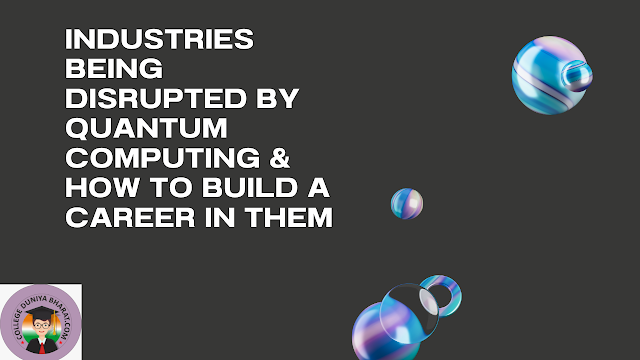Career in Tech-Driven Renewable Energy Systems
Career in Tech-Driven Renewable Energy Systems
In the face of climate change and increasing energy demands, tech-driven renewable energy systems are redefining the future of power generation and sustainability. This rapidly evolving sector blends engineering, data science, AI, and smart infrastructure to create energy solutions that are clean, efficient, and intelligent. As governments and industries worldwide commit to decarbonization and green energy goals, careers in this domain are not only in demand—they are essential.
1. The Rise of Smart Renewable Energy
Traditional renewable systems, like solar panels and wind turbines, have transformed over the years with the infusion of digital technologies. Today’s renewable energy infrastructure uses IoT sensors, machine learning, robotics, and cloud computing to optimize energy capture, predict demand, and manage distribution seamlessly.
For instance, AI algorithms now forecast solar irradiation and wind speeds with high precision, enabling more reliable and efficient energy output. Similarly, smart grids distribute energy dynamically, adjusting loads based on real-time data. This shift has created a surge in demand for professionals who can integrate and maintain both the physical and digital aspects of energy systems.
2. Key Career Paths in Tech-Driven Renewable Energy
A career in tech-driven renewable energy spans a wide range of roles across engineering, data analytics, software development, and systems integration. Some prominent job titles include:
-
Renewable Energy Systems Engineer
Designs and optimizes solar, wind, hydro, and hybrid systems using simulation tools and performance data. -
Energy Data Analyst
Uses data mining and machine learning to improve grid stability, predict consumption trends, and enhance efficiency. -
Smart Grid Engineer
Builds and maintains intelligent energy distribution networks using IoT, AI, and real-time monitoring tools. -
Control Systems Engineer
Develops automated solutions for monitoring and regulating renewable installations. -
Sustainability Software Developer
Creates apps and platforms that monitor carbon footprints, manage energy loads, or support consumer-side energy decisions.
3. Skills and Educational Background
A career in this space typically requires a background in electrical, electronics, mechanical, or energy engineering, though computer science and physics graduates also find relevant roles. Technical skills in demand include:
-
MATLAB, Python, and R for energy modeling and data analysis
-
SCADA systems for monitoring and control
-
IoT protocols (MQTT, Zigbee) and cloud platforms (AWS, Azure)
-
Simulation tools like HOMER, PVsyst, and PVSOL
-
Knowledge of renewable energy policies, energy markets, and ESG standards
Soft skills such as interdisciplinary collaboration, critical thinking, and sustainability-focused problem solving are equally important.
4. Industry Sectors and Job Opportunities
The adoption of renewable energy spans multiple sectors, offering professionals a wide array of opportunities:
-
Utilities and Energy Providers
Working on grid integration, storage, and power optimization. -
Government and Public Policy
Contributing to national renewable strategies, sustainability assessments, and smart city projects. -
Tech Startups and Green Innovators
Designing AI-driven solar tracking systems, blockchain for energy trading, or community microgrids. -
Consulting and Project Management
Overseeing installations, conducting feasibility studies, and evaluating environmental impact.
5. Future Prospects and Global Impact
According to the International Renewable Energy Agency (IRENA), the renewable energy sector could employ over 38 million people globally by 2030. Tech-driven roles will dominate this growth, especially as smart meters, energy storage systems, AI optimization, and EV infrastructure continue to scale.
A career in this field offers not just financial reward, but also the satisfaction of contributing to global sustainability. As nations shift towards net-zero emissions, professionals in tech-enabled renewable systems will become central to shaping the planet’s future energy landscape.
Conclusion
A career in tech-driven renewable energy systems is more than just an engineering job—it’s a mission to innovate, optimize, and sustain. From smart solar farms to intelligent wind turbines and beyond, this field offers dynamic opportunities to build a greener, smarter, and more energy-efficient world. With the right mix of technical know-how and a passion for sustainability, individuals can power both their careers and the planet’s future.

.png)


Comments
Post a Comment